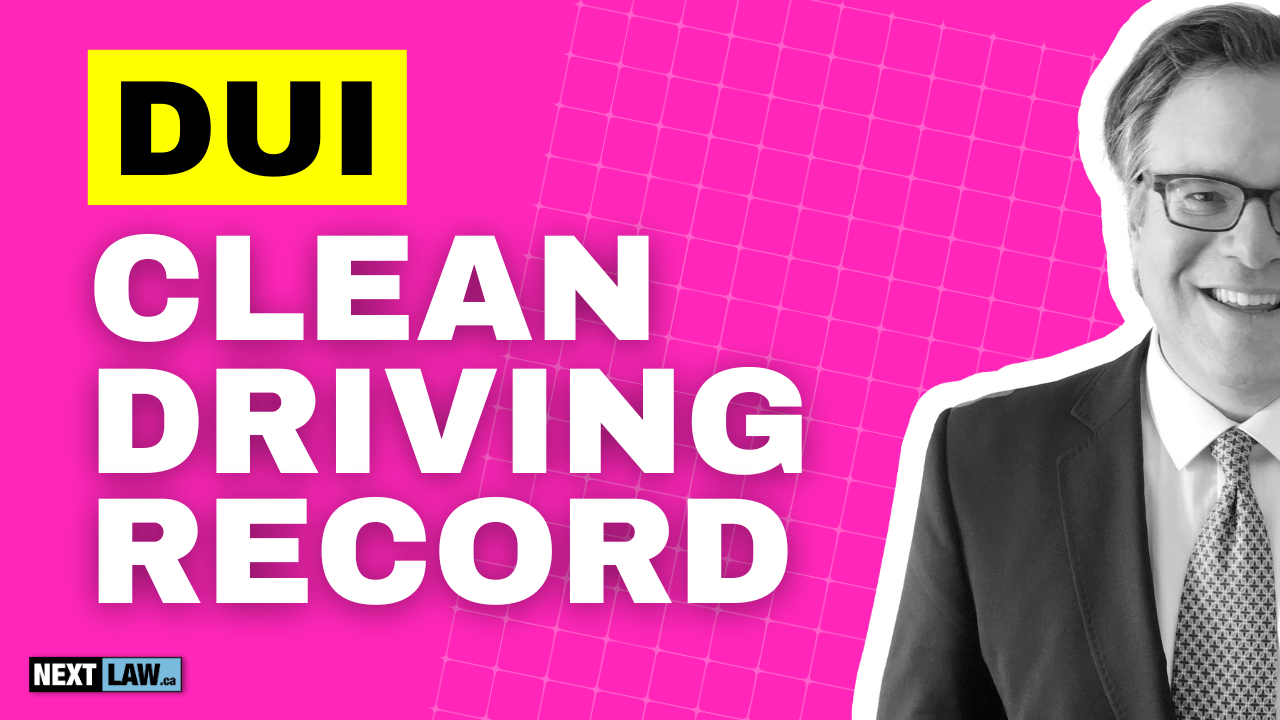Have you been charged with a DUI in Ontario and are counting on your clean driving record to make a difference? Let’s dive deep into the impact of your driving history on your DUI case.
I’m Dan Joffe, DUI Lawyer at NextLaw. Let’s get started.
How Does a Clean Driving Record Impact Your DUI Case?
A clean driving record could lead to more lenient penalties, such as the minimum fine and license suspension, and may even open the possibility of your DUI charge being reduced to a lesser, non-criminal offence. On the other hand, a bad record could result in harsher penalties and eliminate the chance of charge reduction.
Let me unpack what all that means.
Consequences of a DUI: The Basic Penalties
A DUI charge in Ontario comes with severe penalties, even for first-time offenders. Minimum penalties include a $1,000 fine, a 1-year license suspension and a lifetime criminal record. And these penalties can increase in more serious situations.
How the Crown Considers Your Driving Record
Your driving record will be considered when the Crown decides how to proceed with your case. Let’s break it down.
Clean Driving Record: A clean record could provide some leniency. For example, if you have a clean driving record and the facts of your DUI case are not aggravating, the crown may pursue the lower end of the penalties, in other words, the minimum $1,000 fine and the minimum 1-year license suspension.
And, in some cases, the crown may consider dropping your DUI charge in favour of a lesser, non-criminal charge known as Careless Driving under the Highway Traffic Act of Ontario.
Bad Driving Record: Now, a bad driving record can worsen your situation in two ways.
First, the crown may seek penalties exceeding the minimums, in other words, fines greater than $1,000 and or license suspensions more than just 1 year.
And, in some cases, because of your bad driving record, the crown may refuse to drop your DUI case in favour of a lesser, non-criminal offence such as Careless Driving under the Highway Traffic Act.
Defining a Clean Driving Record in Ontario
Let’s define a clean Driving Record in Ontario. A clean driving record in Ontario means you’ve had zero violations since you received your driver’s license. However, the details matter. Let me explain.
Experience counts. A 35-year-old with 18 years of safe driving has a more compelling record than an 18-year-old with just a year of driving experience.
And generally, here’s the Driving Record Formula: The more spotless your record, the better.
The longer you’ve been driving without a conviction, the more weight your history carries. The more years between your driving conviction and your current DUI case, the better.
Your Driving Abstract: What the Crown Sees
So, what is Visible in your Driving Abstract that the Crown will see?
Your driving abstract is like a detailed roadmap of your driving history, and the crown will see it all. This includes old convictions. Even if your last conviction was 20 years ago, it will be visible.
Insurance vs Prosecution: Understanding the Difference
And there’s a difference between insurance and prosecution. Insurance companies may look back only 3 years, and demerit points expire in 2 years, but convictions? They’re permanent markers that don’t disappear from your record.
How does a clean driving record impact a DUI case in Ontario?
A clean driving record can lead to more lenient penalties if you are charged with a DUI in Ontario. For first-time offenders with a clean record, the Crown may pursue the minimum penalties, which include a $1,000 fine and a 1-year license suspension. In some cases, the Crown may even consider reducing the DUI charge to a lesser, non-criminal offence like Careless Driving under the Highway Traffic Act of Ontario.
What penalties can one expect from a DUI charge in Ontario?
In Ontario, even first-time DUI offenders face severe penalties. The minimum penalties include a $1,000 fine, a 1-year license suspension, and a lifetime criminal record. These penalties can escalate in more serious situations or if you have a bad driving record. The Crown may seek fines greater than $1,000 and license suspensions lasting more than one year, and might not consider reducing the charge to a lesser offence.



